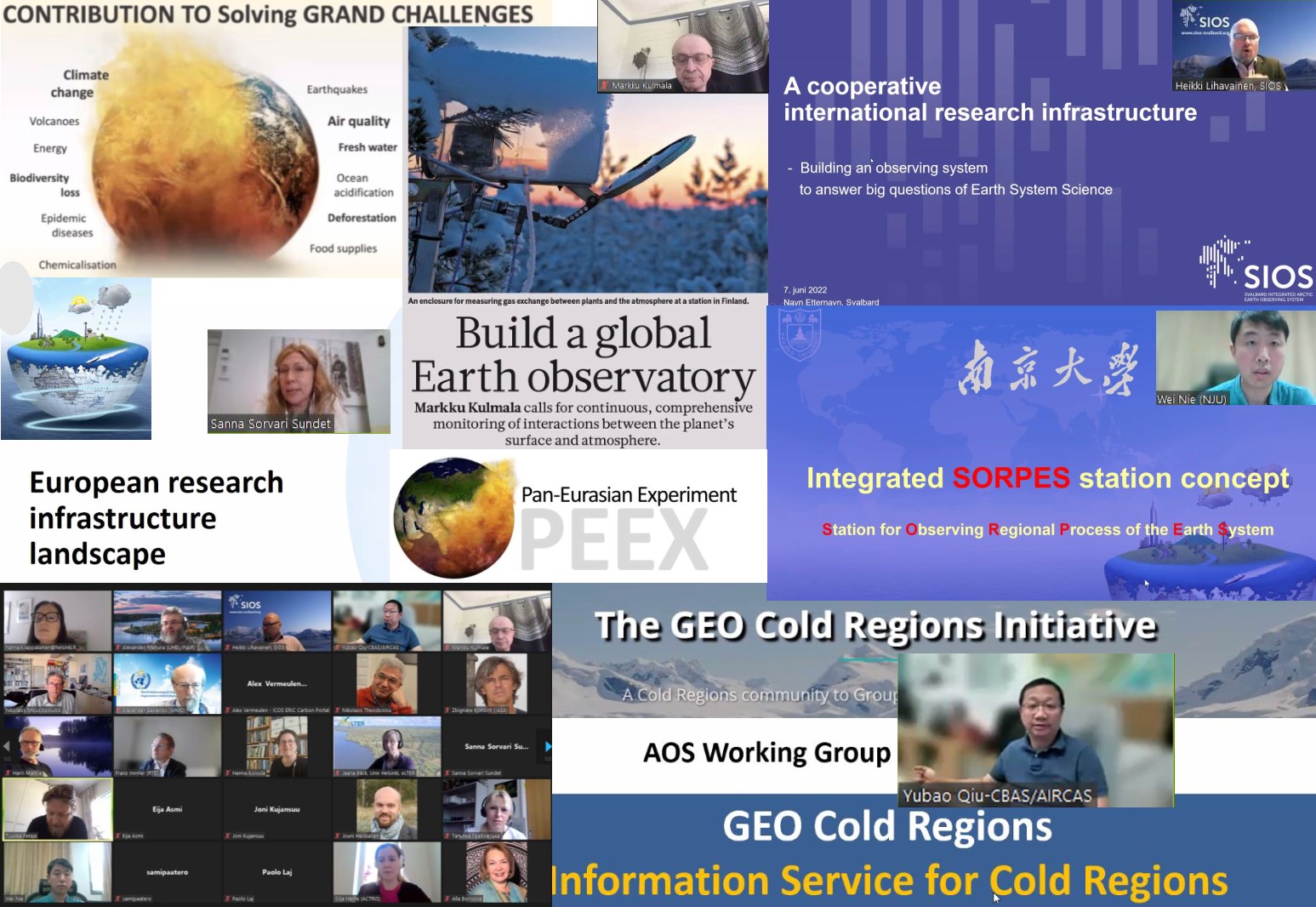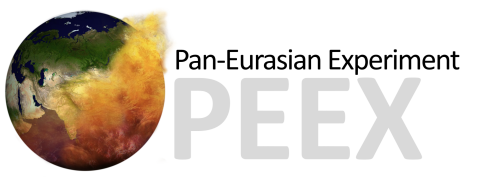Project Description

The PEEX / Global Observatory online meeting “Towards coherent and coordinated atmospheric observation systems” took place on 7 June 2022. About 30 participants attend the event from different universities/ research institutions/ private companies (from Austria, Belgium, Finland, China, Greece, Norway, Switzerland, Ukraine), including the European Commission RTD (Belgium), international organization such as World Meteorological Organization (WMO, Switzerland), International Institute for Applied System Analysis (IIASA, Austria).
The Global Earth Observatory is an initiative coordinated by the Atmospheric Climate Competence Center (ACCC; https://www.acccflagship.fi) which is a joint effort of the Institute for Atmospheric and Earth System Research (INAR) at University of Helsinki, Finnish Meteorological Institute, Tampere University and University of Eastern Finland. The Global Earth Observatory Initiative is bridging networks towards integrated climate and environment relevant observations.
The meeting aim – to discuss, how to best integrate different in-situ environmental data and how to best seamlessly bridge in-situ and remote sensing data. This integrative approach includes methods, databases, in-situ stations co-location and co-data etc. aspects. Big data is needed to solve Global Grand Challenges (climate change, air pollution, food production) and to meet the United Nations Sustainable Development Goals (SDGs). Big data is needed to carry out research such as analysis of land – atmosphere inter-actions and feedbacks and to provide services to society. Integrated observation systems provide steps towards implementation of the future Research Infrastructures (RIs) and generating big open data.
The agenda of the meeting included a series of invited presentations followed by discussions on presentations and future steps in collaboration and building roadmap. The presentations included talks about the Global Earth Observatory current and future (in 20 years) outlooks; European research infrastructure landscape; EU policy context, research activities in the area of climate observations, future strategies; World Meteorological Organization Global Atmospheric Watch (WMO-GAW) – globally-harmonized, quality-assured data on variables of importance to atmospheric composition on all scales; Group on Earth Observations Cold Regions Initiative (GEOCRI) as an example of integrated, remote sensing data pool; Svalbard Integrated Arctic Earth Observing System (SIOS) research infrastructure as an example of integrated observation system; Integrated Station for Observing Regional Processes of the Earth System (SORPES) concept; Climate Analytics – a new service concept.
Discussions were focused on importance of excellent science in background of operations; recognizing different contribution and roles; applying multi-dimensional and Earth system approaches; strengthening the RI collaboration, integrated service provision, joint technology development; expanding collaboration with stakeholders; building blocks including national observation sites, regional, continental and global structures.
Necessary preparatory work (to develop draft based on discussion) for roadmap will start in Helsinki and draft to be shared with community before the next meeting (expected in Oct-Nov 2022).
Text by: Hanna Lappalainen, Tuukka Petäjä, Alexander Mahura (University of Helsinki, INAR)
